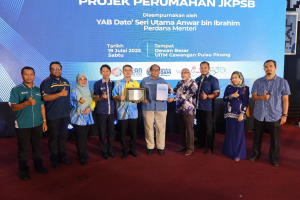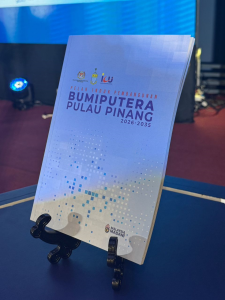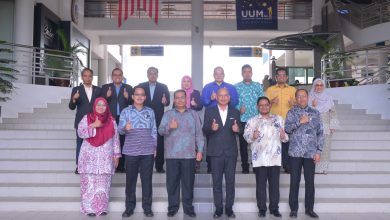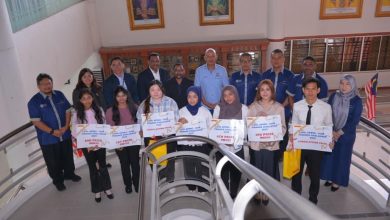UUM Entrusted with Strategic Role in Penang Bumiputera Development Agenda
PULAU PINANG, 20 July 2025: The School of Business Management (SBM), Universiti Utara Malaysia (UUM) continues to solidify its position as a reference institution in public policy research following its appointment to lead the preparation of the Penang Bumiputera Development Master Plan 2026–2035 (PIPBPP35).
The official launch of the plan also saw the introduction of two additional initiatives, namely the Tunas Madani Programme and the implementation of affordable housing projects by JKP Sdn. Bhd. (JKPSB). These three key agendas were announced by the Prime Minister, Dato’ Seri Anwar Bin Ibrahim, during a ceremony that brought together various stakeholders.
PIPBPP35 was developed through a collaborative approach involving three higher education institutions, namely UUM, Universiti Sains Malaysia and Universiti Teknologi MARA. This initiative integrates expertise in the fields of entrepreneurship, management, economics, community development and public policy.
The research team was led by Assoc. Prof. Dr Jauriyah Shamsudin from SBM, with the involvement of interdisciplinary researchers committed to the principles of inclusivity and sustainable development.
This plan, according to her, emphasises three main clusters, namely enhancing individual and community well-being, generating and redistributing economic wealth, and establishing a responsive governance ecosystem.
She emphasised that this strategic approach is built upon extensive fieldwork, community engagement sessions, and comprehensive policy analysis.
In recognition of the academic cooperation established, key figures from the higher education institutions involved were presented with tokens of appreciation from the Prime Minister. UUM was represented by the Vice-Chancellor, Prof. Dato’ Dr Mohd Foad Sakdan.
SBM extends its sincere appreciation to the Penang Bumiputera Development Council and the Penang Bumiputera Participation Coordination Division for their trust and confidence. This appointment reaffirms the pivotal role of academic institutions not only as centres of knowledge, but also as strategic partners in developing national policy.
Moving forward, SBM remains committed to leveraging its expertise and researchers to ensure the success of the national agenda through impactful policy research, community development and the formulation of high-impact action plans.





